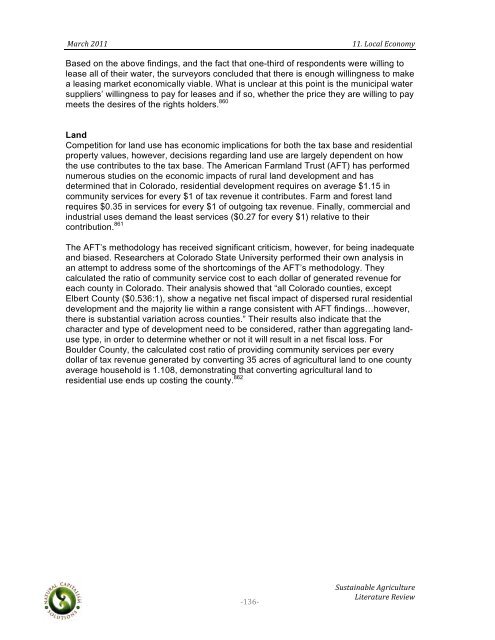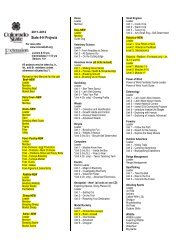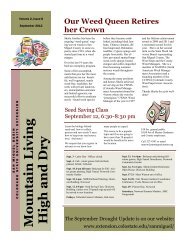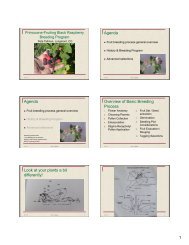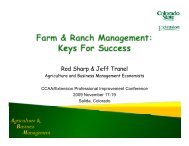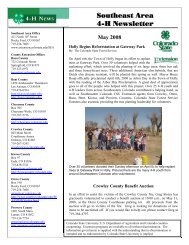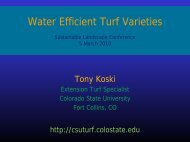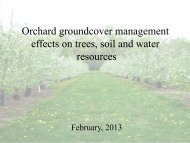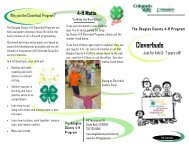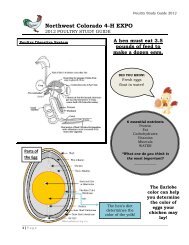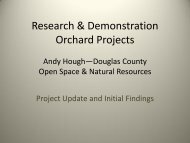Sustainable Agriculture Literature Review - Boulder County
Sustainable Agriculture Literature Review - Boulder County
Sustainable Agriculture Literature Review - Boulder County
Create successful ePaper yourself
Turn your PDF publications into a flip-book with our unique Google optimized e-Paper software.
! !!<br />
"#$%&!'())!! !!!!!!!!!!!!!!!!!!!!!!!!!!!!!!!!!!!!!!!!!!!!!!!!!!!!!!!!!!!!!!))+!9-%#/!H%-5-BF!<br />
Based on the above findings, and the fact that one-third of respondents were willing to<br />
lease all of their water, the surveyors concluded that there is enough willingness to make<br />
a leasing market economically viable. What is unclear at this point is the municipal water<br />
suppliers’ willingness to pay for leases and if so, whether the price they are willing to pay<br />
meets the desires of the rights holders. 860<br />
Land<br />
Competition for land use has economic implications for both the tax base and residential<br />
property values, however, decisions regarding land use are largely dependent on how<br />
the use contributes to the tax base. The American Farmland Trust (AFT) has performed<br />
numerous studies on the economic impacts of rural land development and has<br />
determined that in Colorado, residential development requires on average $1.15 in<br />
community services for every $1 of tax revenue it contributes. Farm and forest land<br />
requires $0.35 in services for every $1 of outgoing tax revenue. Finally, commercial and<br />
industrial uses demand the least services ($0.27 for every $1) relative to their<br />
contribution. 861<br />
The AFT’s methodology has received significant criticism, however, for being inadequate<br />
and biased. Researchers at Colorado State University performed their own analysis in<br />
an attempt to address some of the shortcomings of the AFT’s methodology. They<br />
calculated the ratio of community service cost to each dollar of generated revenue for<br />
each county in Colorado. Their analysis showed that “all Colorado counties, except<br />
Elbert <strong>County</strong> ($0.536:1), show a negative net fiscal impact of dispersed rural residential<br />
development and the majority lie within a range consistent with AFT findings…however,<br />
there is substantial variation across counties.” Their results also indicate that the<br />
character and type of development need to be considered, rather than aggregating landuse<br />
type, in order to determine whether or not it will result in a net fiscal loss. For<br />
<strong>Boulder</strong> <strong>County</strong>, the calculated cost ratio of providing community services per every<br />
dollar of tax revenue generated by converting 35 acres of agricultural land to one county<br />
average household is 1.108, demonstrating that converting agricultural land to<br />
residential use ends up costing the county. 862<br />
!<br />
"')%"<br />
!,342#.5#6/1!78$.%3/23$1!<br />
9.21$#23$1!:1;.1


